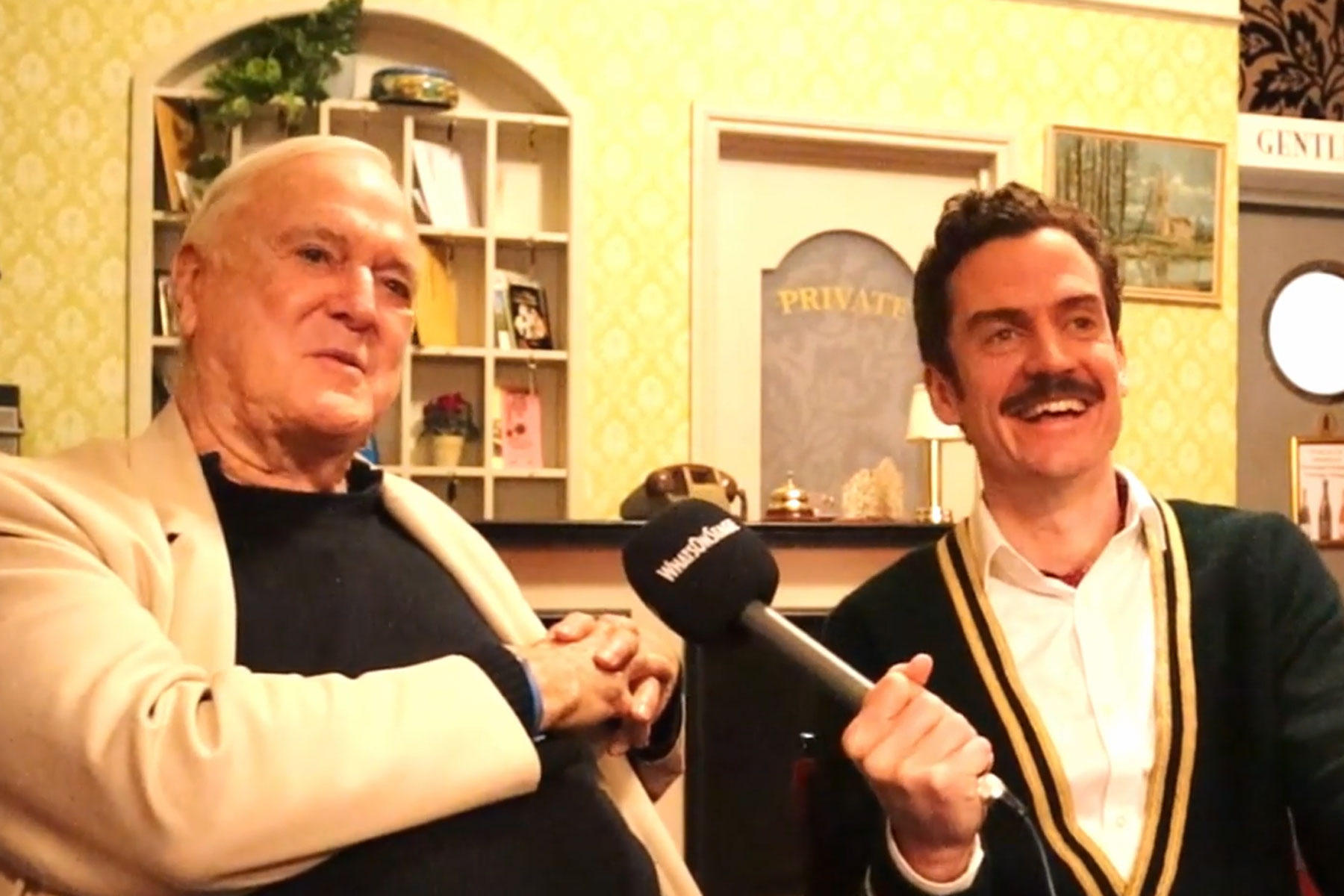Playwright Simon Gray Dies After Cancer Battle, 71
Playwright Simon Gray (pictured) – author of more than 30 plays including Quartermaine’s Terms, Otherwise Engaged and Butley – passed away in London on Wednesday (6 August 2008). A lifelong smoker, and in his later years, author of the Smoking Diaries volumes of memoirs, Gray was diagnosed with cancer last year.
Born 21 October 1936 on Hayling Island, Hampshire, Gray was educated at Dalhousie University in Canada and at Trinity College, Cambridge, and worked for many years as an English lecturer at the University of London’s Queen Mary college. Many of his plays centred on the academic world.
Gray’s first play, Wise Child, was mounted at the West End’s Wyndham’s Theatre in 1967, with Alec Guinness in the cast, but his big break came in 1971 with Butley, about a professor in meltdown, which was made into a film after its West End premiere.
Regular West End outings followed in the 1970s and early 1980s, including Molly, The Rear Column, Stage Struck, Quartermaine’s Terms and The Common Pursuit. Gray’s work fell slightly out of favour in the late 1980s and 1990s. He continued to produce new plays – such as Hidden Laughter, Life Support, Just the Three of Us and The Late Middle Classes – though they didn’t always make it into London or not for long. Famously, the West End premiere of his 1995 play Cell Mates was pulled after star Stephen Fry, suffering from stage fright, fled and later turned up in Belgium.
In more recent years, Japes ran at the Theatre Royal Haymarket with Jasper Britton and Toby Stephens in 2001, Edward Fox starred in the premiere of The Old Masters at the Comedy Theatre in 2004 and, in the same year, Simon Callow was in The Holy Terror (a revised version of 1987’s Melon) at the Duke of York’s. Gray’s latest play, a Charles Dickens bio-drama called Little Nell, was directed by Peter Hall at the Theatre Royal Bath last summer.
There have also been high-profile revivals of: Otherwise Engaged, starring Richard E Grant and Anthony Head at the Criterion in 2005; Butley, with Nathan Lane on Broadway in 2006; and just this summer back in London, The Common Pursuit, starring Nigel Harman and James Dreyfus, at the Menier Chocolate Factory.
Over the years, Gray made no secret of his disappointment in the business of theatre. In a 2004 interview with Whatsonstage.com (See 20 Questions, 26 Apr 2004), he said: “Do I enjoy being a writer? Sometimes, when I’m writing. But with playwriting, you’ve got to get the bloody play on, haven’t you? That’s what I don’t enjoy.”
However, he did successfully turn many of his theatrical failures into literary opportunities with a series of behind-the-scenes memoirs, including An Unnatural Pursuit, Fat Chance and How’s That for Telling ‘Em, Fat Lady?.
His most recent diaries for Granta Books – The Smoking Diaries and subsequent volumes, The Year of the Jouncer and The Last Cigarette, the final instalment which is due for publication later this year – recount not only Gray’s tussles with producers but also his personal battles with addiction, primarily with tobacco. The writer started smoking at the age of seven and his habit increased to 65 cigarettes a day, which he refused to give up despite the toll it took on his health.
Beyond the stage, Gray wrote screenplays for the 1987 film of A Month in the Country and, for television, The Man in the Sidecar, Plaintiffs and Defendants, Two Sundays, After Pilkington, Old Flames, They Never Slept, Running Late, Femme Fatale and, based on his earlier memoir, Unnatural Pursuits. He also authored five novels: Colmain, Simple People, A Comeback for Stark, Little Portia and Breaking Hearts.
In the New Year honours list in 2005, Gray was made a CBE for his services to drama and literature. During his career, he counted amongst his closest associates the late actor Alan Bates, who starred in ten of his plays, and Nobel Prize-winning fellow playwright Harold Pinter, who directed nine of them. In the 2004 Whatsonstage.com interview, he named them as, respectively, his favourite actor and director.
In his Whatsonstage.com blog today, critic Michael Coveney commented on Gray’s legacy: “There’s a wonderful casual acidity about the way he (Gray) looks at the world. He’s like Alan Bennett but without the curlicues and soft edges. Nothing much pleases him, except the company of friends and perhaps the odd game of cricket, and he backs off from forming too many moral conclusions.” He is survived by his wife and daughter.
– by Terri Paddock










